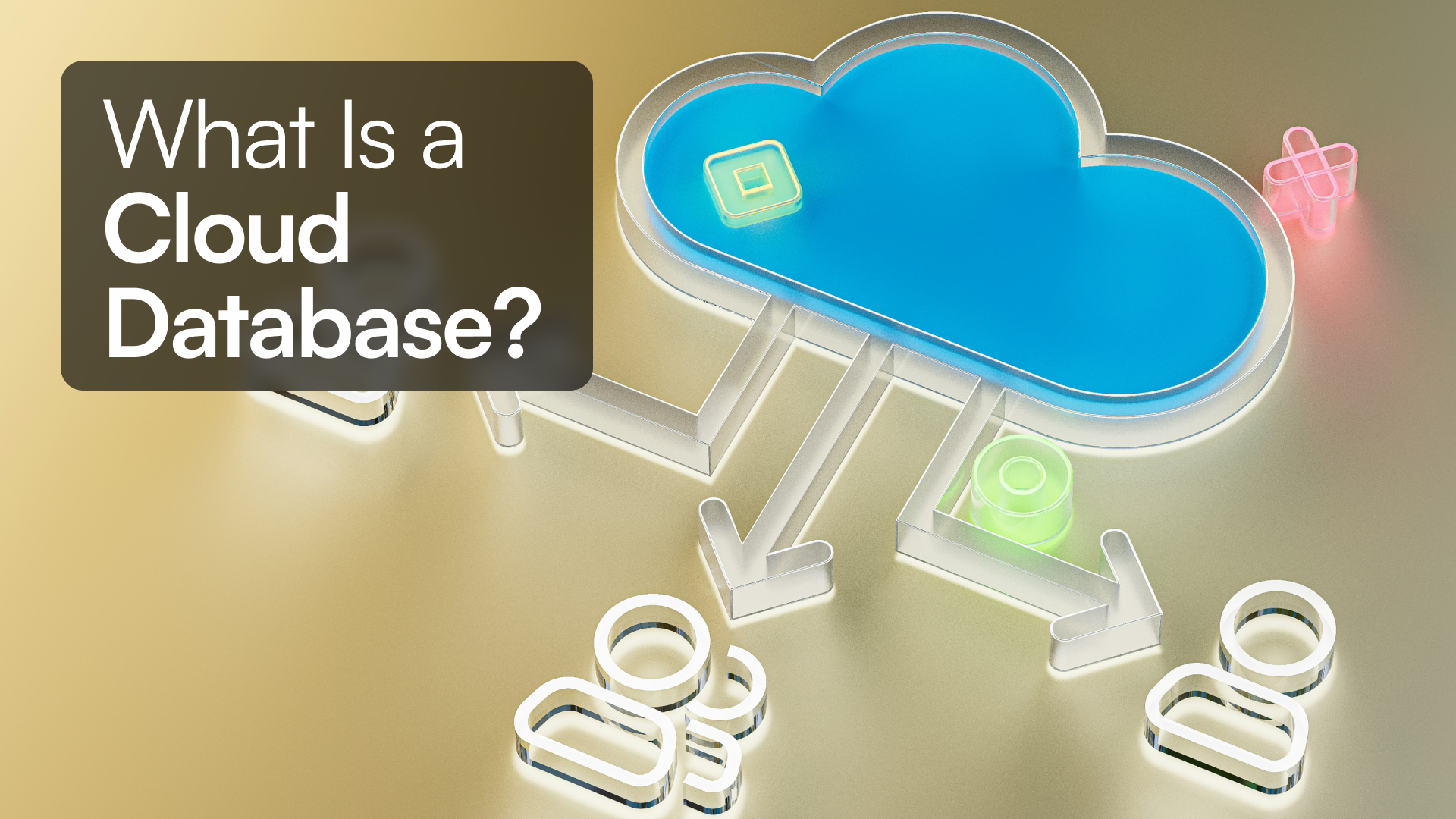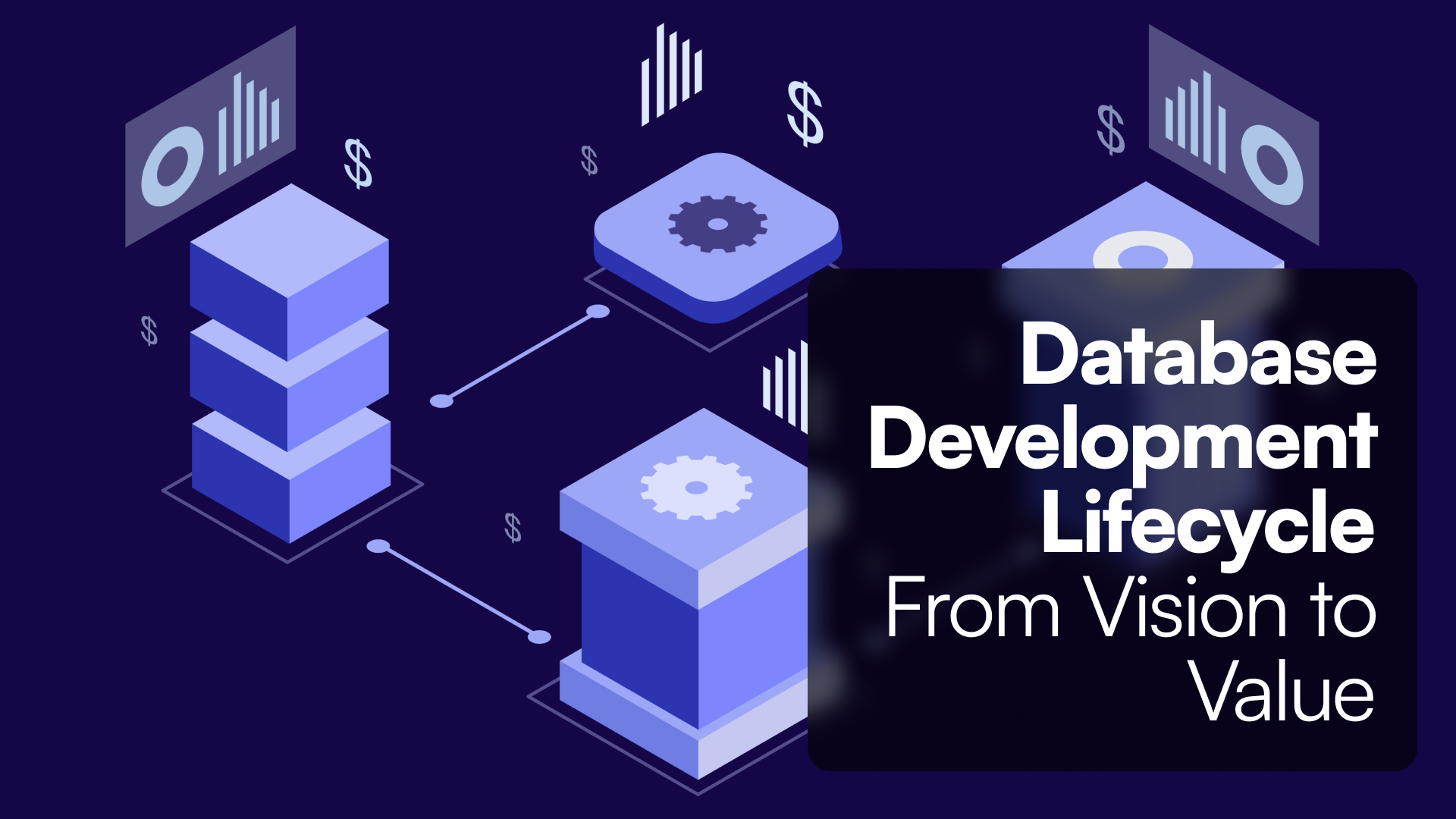Introduction
Managing data is more critical than ever for businesses, and the cloud has become the go-to solution for flexible and scalable database management. But what exactly is a cloud database, and how does it differ from traditional setups? In this post, we’ll break down everything you need to know about cloud databases and why so many organizations are making the switch.
What Is a Cloud Database?
A cloud database is, simply put, a database that runs in the cloud. Instead of being stored on a company’s own physical servers, it’s hosted in a virtual environment—usually through a service like AWS, Google Cloud, or Tadabase. This setup allows companies to access their data from anywhere, scale up or down based on their needs, and avoid the hassle of managing physical hardware.
There are two main ways businesses use cloud databases:
-
Managed (DBaaS): With Database-as-a-Service (DBaaS), the cloud provider handles everything—maintenance, backups, updates, scaling—so you don’t have to.
-
Self-Managed: Alternatively, companies can deploy their own databases on virtual machines in the cloud and manage them internally. This offers more control but requires an IT team to handle day-to-day tasks.
Why Are Cloud Databases So Popular?
The shift to cloud databases isn’t just a passing trend. They offer several real-world advantages that traditional databases simply can’t match. Let’s look at why so many businesses are moving their data to the cloud:
1. Scalability Without the Headache
With a cloud database, you can scale up or down as your needs change. This is a huge plus for businesses with fluctuating workloads—think of an e-commerce site handling a surge in holiday traffic. Instead of buying more servers (and then wondering what to do with them in the off-season), a cloud database lets you add more resources instantly and scale back down when things calm down.
2. Cost-Efficiency
No one likes paying for unused hardware or dealing with expensive server maintenance. Cloud databases let you pay only for what you use, whether that’s storage, computing power, or both. And if you’re using a managed service like DBaaS, the provider takes care of all the backend stuff—saving you both time and money.
3. Access Anytime, Anywhere
Because cloud databases are hosted online, your team can access critical data from anywhere—whether they’re working in the office, at home, or on the go. This flexibility is a game-changer for businesses that have employees or operations spread across different locations.
4. Built-In Security and Redundancy
Security is a top priority for cloud providers. They use encryption, multi-factor authentication, and other advanced measures to protect your data. Plus, cloud databases often come with automated backups and data replication across multiple locations, so you’re covered if anything goes wrong.
5. Disaster Recovery Made Easy
Since cloud databases store data in multiple locations, they’re designed for high availability. If one data center has an issue, your data is still accessible from another location, ensuring minimal downtime. Many cloud providers also offer built-in disaster recovery tools, which is especially valuable for mission-critical systems.
Top Cloud Database Platforms
Several platforms dominate the cloud database space, each offering its own strengths. Here’s a look at some of the most popular options:
1. Tadabase 
Tadabase offers a powerful cloud-based platform that simplifies data management for businesses of all sizes. It combines database functionality with a visual app builder, allowing users to create custom data-driven applications without needing to write any code. For organizations looking to streamline operations and improve efficiency, Tadabase's fully managed cloud database makes it easy to scale while focusing on core business tasks.
2. Amazon Web Services (AWS) 
AWS offers a suite of database services, including Amazon RDS for traditional relational databases and DynamoDB for NoSQL workloads. AWS’s reputation for flexibility and scalability makes it a top choice for many businesses.
3. Microsoft Azure 
Azure provides Azure SQL Database for relational data and Cosmos DB for globally distributed NoSQL data. Azure integrates seamlessly with Microsoft’s other products, making it a natural fit for companies already using Microsoft tools.
4. Google Cloud 
Google Cloud’s Spanner is a standout for its ability to handle relational data at a massive scale with minimal downtime. Google also offers Firebase for real-time data synchronization in mobile and web apps.
5. Oracle Cloud 
Oracle’s Autonomous Database uses machine learning to automate many management tasks, such as patching and tuning. It’s a great option for large enterprises that need high performance and reliability.
6. MongoDB Atlas 
MongoDB Atlas is a fully managed cloud version of the popular NoSQL database, MongoDB. It’s particularly well-suited for applications that need to handle large amounts of unstructured data, like mobile apps or real-time analytics.
Choosing the Right Cloud Database for Your Business
There’s no one-size-fits-all when it comes to cloud databases. Here are some questions to consider when choosing a platform:
-
What type of data do you have? If you’re dealing with structured data (like customer records), a relational database like Amazon RDS or Azure SQL is probably your best bet. For unstructured data (like social media posts), a NoSQL option like MongoDB Atlas might be a better fit.
-
How much control do you want? If you’re comfortable managing the database yourself, a self-managed setup might make sense. But if you’d rather focus on your core business and leave the database management to someone else, a DBaaS option is probably the way to go.
-
Do you have specific compliance needs? If your industry is heavily regulated, make sure the cloud provider you choose can meet all relevant compliance standards, like GDPR, HIPAA, or PCI DSS.
-
What’s your budget? Cloud databases can be cost-effective, but it’s still important to choose a solution that fits within your budget. Many providers offer pay-as-you-go pricing, which helps keep costs in check.
Real-World Use Cases
Cloud databases aren’t just for tech companies. Here’s how businesses in different industries are putting them to work:
- Netflix: Uses Amazon DynamoDB to scale its recommendation engine, which handles millions of requests per second.
- Snapchat: Relies on Google’s Firebase to sync real-time data for its messaging and multimedia features.
- Capital One: Uses AWS and MongoDB Atlas to improve its banking operations, allowing for better data insights and customer experiences.
Final Thoughts
Cloud databases are quickly becoming the new standard for businesses that need flexible, scalable, and cost-effective data management solutions. Whether you’re looking to simplify your IT operations with a managed DBaaS or gain more control with a self-managed setup, there’s a cloud database out there to fit your needs.
By choosing the right platform, like Tadabase or one of the major providers, you can unlock the benefits of high availability, easy scalability, and enhanced security—giving your business the competitive edge it needs to thrive in today’s fast-paced environment.







